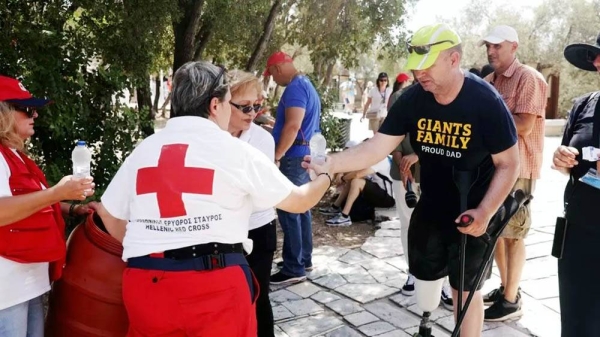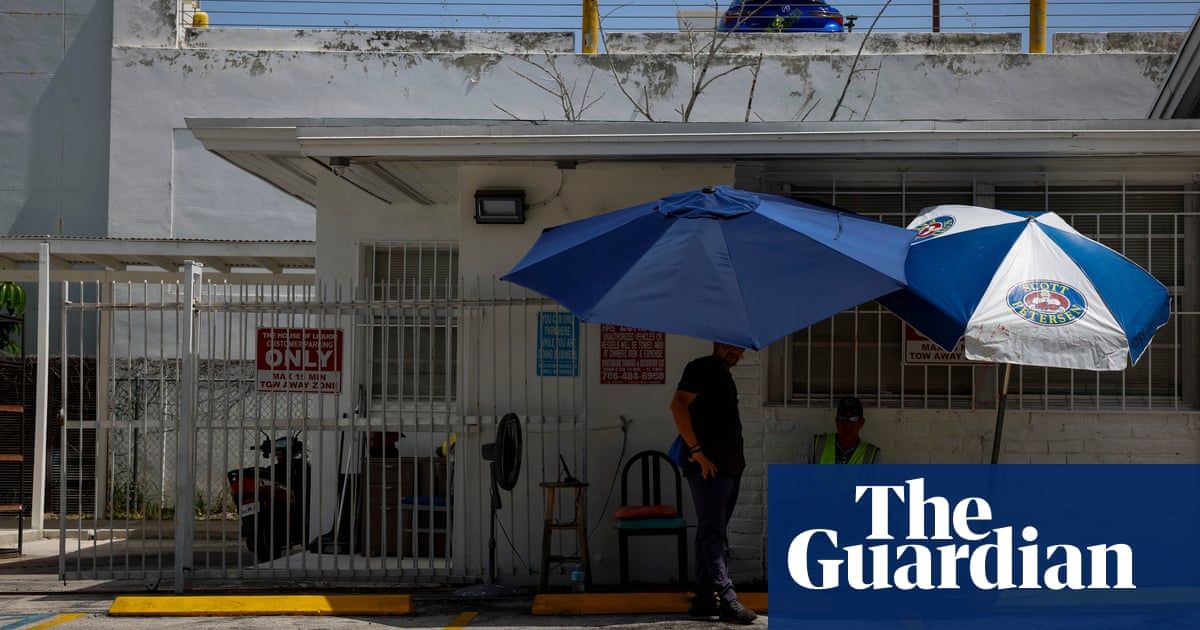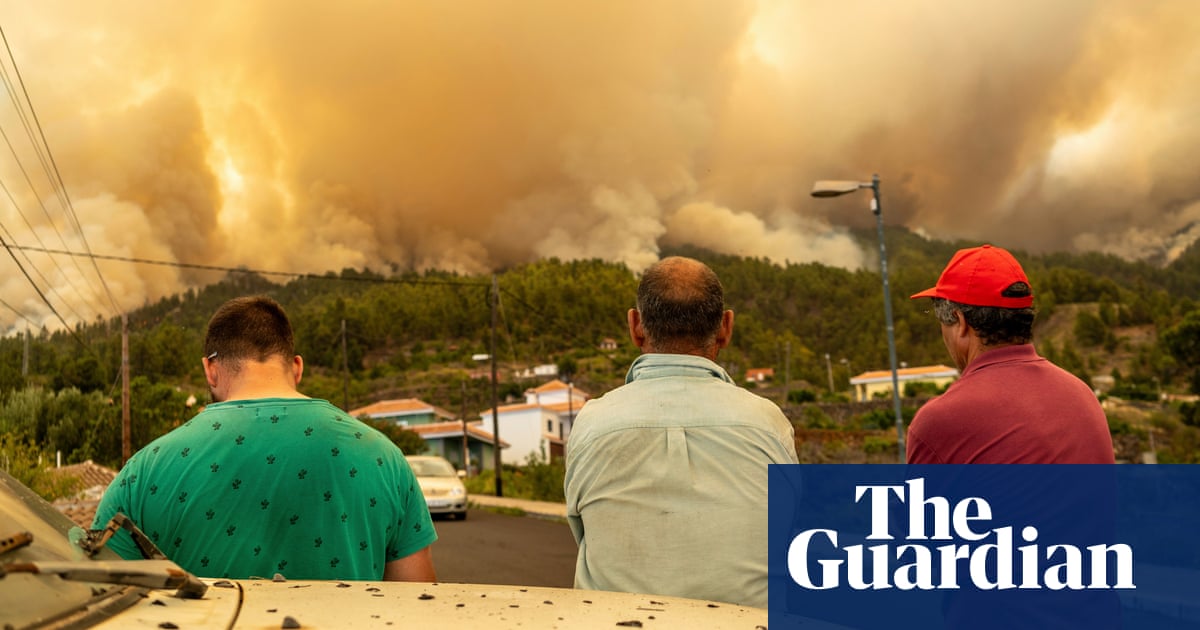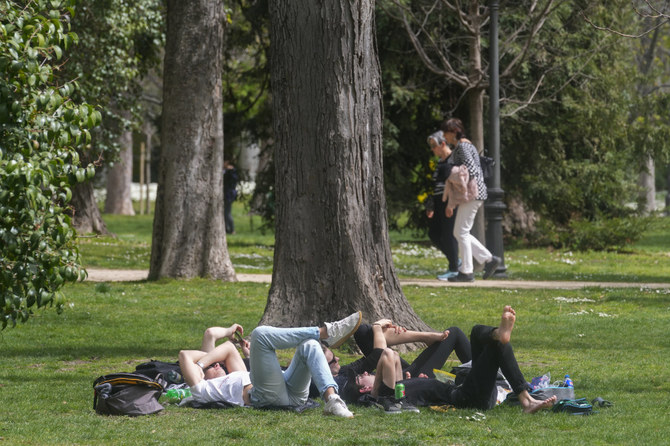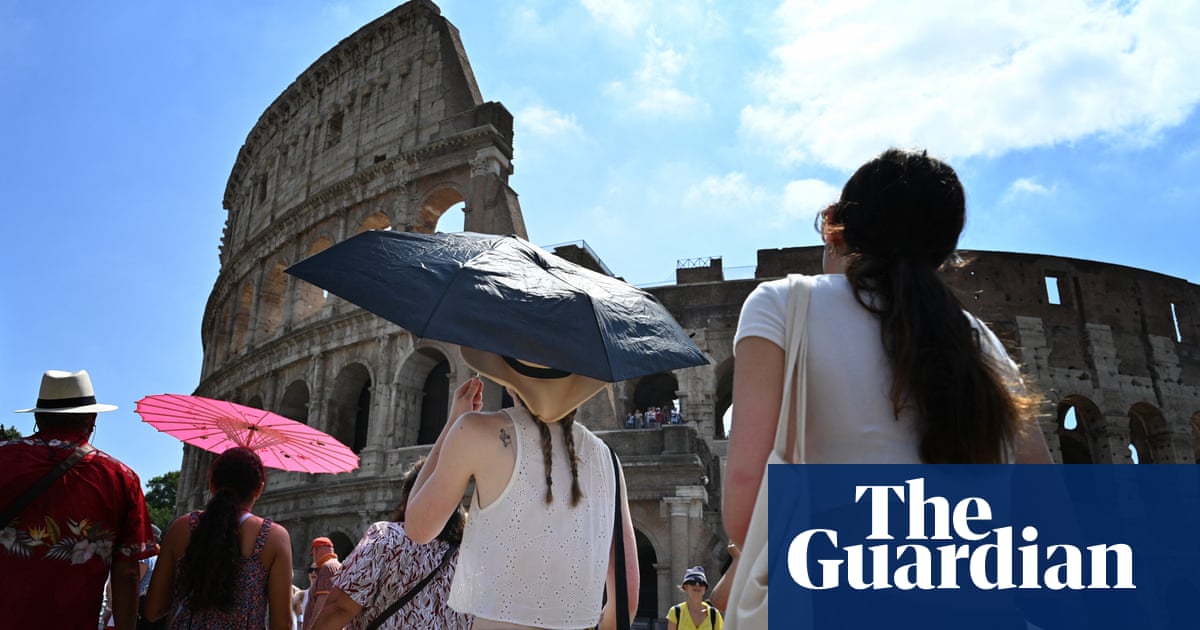
A ferocious heatwave inflamed by carbon pollution is baking southern Europe, posing severe health risks to older people and those with underlying health conditions.
Scorching heat has already hit several countries, with local media reports of tourists collapsing in Greece and Italy, and an outdoor worker dying near Milan. Temperatures are expected to hit 42C in Athens on Saturday, 41C in Seville on Monday and 40C in Rome on Tuesday.
An area of high pressure called Cerberus – named after a three-headed dog from Dante Alighieri’s poem Inferno – has brought hot air from Africa to Europe. Warm air, which holds more moisture than cold air, can lead to hot and dry conditions in some areas, and heavy rains and flash floods in others.
The warming climate makes these extremes stronger and more common, said Alvaro Silva from the World Meteorological Organisation. “By 2050, about half of the European population may face high or very high risk of heat stress in summer.”
The planet has warmed 1.2C since the Industrial Revolution because of heat-trapping gases spewed by fossil fuels, and the destruction of nature. In Europe, temperatures have risen nearly twice as fast.
El Niño, a naturally occurring weather pattern that has returned after a three-year break, is expected to push temperatures even higher this year. The first few days of July were the hottest that scientists have ever recorded.
The size of the role that the climate crisis plays can be assessed only after an extreme weather event is over. A study from the World Weather Attribution in May found climate breakdown made hot temperatures the previous month in Spain, Portugal, Morocco and Algeria at least 100 times more likely.
Across the continent, doctors, scientists and officials have told people to take extra care in the heat. In Spain, the Red Cross told people near wildfires to stay indoors and shut windows. In Greece, volunteers handed out bottles of water at tourist sites and authorities took the unusual step of briefly closing the Acropolis to “protect” visitors.
The decision to shut the country’s prime tourist site for five hours from midday came as the government announced contingency measures to cope with the extreme temperatures. For the first time, a ban was placed on people working in construction and the delivery sector during the hottest hours of the day. In Athens, where urban heat islands have kept temperatures high even at night, employees in the public and private sector were encouraged to work remotely. The wind offered little hoped for respite as the first of many feared forest fires erupted on the Aegean island of Naxos.
Hospital admissions increase when temperatures rise, said José Valencia-Martín, a doctor and public health expert at Virgen del Rocío university hospital in Spain. “The prevention and control of the effects of increasingly frequent, prolonged and intense heatwaves is a challenge.”
Heatwaves are often called “silent killers” because most of the deaths go uncounted in official statistics. A small share of deaths are from heatstroke and dehydration. Many more come from hot weather stopping the body from functioning normally, particularly in people with underlying illness.
“All of us can be a victim of heat,” said Ana Vicedo-Cabrera, head of the climate and health research group at the University of Berne. “It doesn’t mean heat will kill us only if we are working in the field at 40C. If you’re a frail individual exposed to heat, your chance of going to hospital or dying increases.”
A study published on Monday found more than 61,000 people had died last year in Europe from summer heat. Southern European countries such as Italy, Spain, Greece and Portugal were the hardest hit. Women and older people died at the highest rates.
As well as record-breaking hot days, scientists also warn of nights too warm for the body to recover.
Hot nights put the body under prolonged thermal stress and reduce sleep, said Dominic Royé, a public health expert at the Climate Research Foundation in Madrid. “We pay a lot of attention to the maximums, but we forget about the minimums.”
The number of tropical nights had doubled or even tripled in most parts of southern Europe, said Royé, establishing new thresholds for “hellish” nights for minimums above 30C.
Cities that have learned to cope with heat have managed to reduce death tolls when temperatures spike. Some have reduced the temperatures of the cities themselves by adding more green spaces. Others have developed heat action plans and early warning systems to prepare citizens and emergency services.
To stay safe, said Valencia, people should drink water, avoid direct exposure to the sun, wear light clothing and apply sunscreen.






